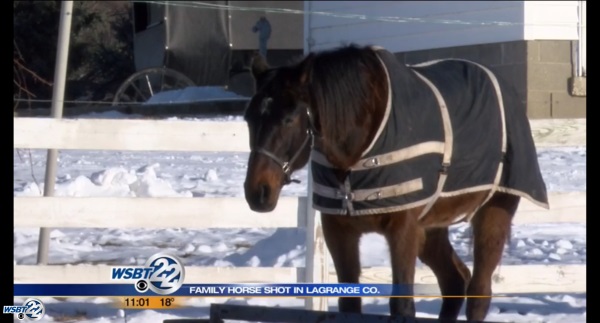Mullet Sentence Reduced to 10 Years, 9 Months
Sam Mullet along with the seven remaining imprisoned members of the Bergholz community have just received shorter sentences for their roles in the 2011 beard-cutting attacks. From the report:
along with the seven remaining imprisoned members of the Bergholz community have just received shorter sentences for their roles in the 2011 beard-cutting attacks. From the report:
Mullet’s 15-year sentence was reduced to 10 years, nine months. Sentences for four men who received seven years were cut to five years. Sentences for three men who got five years were lowered to three years, seven months.
The other eight, including six women, have served their sentences.
Doing my own math: barring further twists in this case, and assuming the roughly three years already served count against the new sentence, Mullet will be scheduled for release sometime in 2022 when he is 76 years old.
UPDATE: I asked Donald Kraybill, who served as an expert witness at the 2012 trial, for his thoughts on the resentencing. He replies:
I guess I’m not surprised at the outcome. Defense attorneys had argued that all of the defendants should be released because the hate crimes no longer applied. The prosecutors argued the opposite, saying given the nature of the crimes and the intent, etc., that the judge had not followed the maximum guidelines in the first place and that the length of the terms should not be reduced.
It’s my impression that in this case the federal district judge (who had originally presided over the trial in September 2012) had considerable discretion to decide the final outcome today. In essence he walked a middle road; reducing everyone’s length of sentence, but assuring that all the men with serious charges and especially Mullet need to do additional time in prison. A number of these men with longer sentences had been arrested and imprisoned in November 2011. So some of them have already served three years and three months.
I’m certain that that amount of time served will be reduced from the time of the length of the new sentences determined today. Those who were afraid that Sam Mullet might be released soon and again pose a danger to the community can still rest in peace for several years.
Image: WKYC-TV






You know I was going to look this up a few days ago.. We didnt hear anything here in the Cleveland area.. or I didnt.
Well, at least he’ll be out of a whole lot of folks hair for a while. 😉
Great pun
Now that’s funny!
My pun detector must be on the fritz today. Went right over my head.
Just a note–I couldn’t easily locate Mullet’s exact birthdate or time served so far, hence the hedging on the release date/age above. But, should be in that ballpark.
10 years
A little overkill on that time when you consider people murder and get less time.
Those computing release dates should note that Federal convicts are eligible to have their sentences reduced by 15% for “good time” credit, in other words, for behaving themselves in prison. Now this is not a straight 15% reduction of a 129 month sentence, because “good time” credit is “earned” little by little throughout the course of each year, resulting in a sentence reduction at best of somewhat less than a full 15%.
I’m glad this case, in the end, was not considerd a hate crime, but i’ll leave it to those who were involved in the process more directly to decide if this sentence is “just” or not.
Thanks Ed for pointing that out. So we might be able to knock maybe a year or so off of my estimate of Mullet’s release above, if good time credit is earned. I hadn’t noticed an official estimate so did my own, but if anyone does see one feel free to share here.